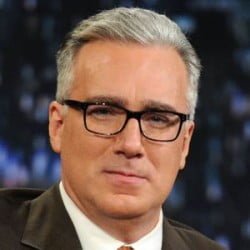Mets fans haven’t always had a great team to root for, but they have been treated to outstanding broadcasts of the team’s games on the radio and television for decades. The current incarnations of those booths are beloved: Gary Cohen, Keith Hernandez, and Ron Darling in the SNY booth for TV, and Howie Rose and Josh Lewin in the WOR booth.
Chris Majkowski, the producer and engineer who operates behind the scenes in the radio booth, isn’t exactly an unknown among die-hard Mets fans. He hasn’t taken a day off in over twenty years, a streak that has had Howie Rose calling him “‘The Immortal’ Chris Majkowski” on broadcasts for years. And his Twitter feed, @MetsBooth, is popular.
Majkowski doesn’t really think of what he does as work. He considers his seat the best one in the house, or at least the next-best to Rose’s seat. He clearly appreciates that he gets to do what he does for a living and thoroughly enjoys it.
A lifelong Mets fan, Majkowski who grew up in Albertson, a town in Nassau County, and graduated from Fordham University in The Bronx, where he got the radio bug while working at WFUV, the school’s well-regarded radio station. He remembers the first game he attended as a child, sitting in the back rows of the field boxes at Shea Stadium for a double-header between the Mets and Reds on a sweltering day. But it was tough to see much of anything from those seats, and they only stayed for the first game.
His first vivid memories of sports came in 1973: the Mets’ playoff push late in the regular season, Rusty Staub dislocating his shoulder against the A’s in the World Series, and literally running home from school to catch playoff games—which were all played during the day—on the black-and-white television in the basement at home.
Majkowski got his start in the radio business about a year after he graduated college when Bob Jewell, who was the chief engineer at WFUV, told him he knew a couple of guys that were looking for someone who could handle radio equipment and had an understanding of sports, someone who could keep a scorecard and know when timeouts were coming up to assist the broadcasters.
“Oh, well that sounds like something that would be up my alley,” Majkowski thought.
So he started with those guys: Joel Blumberg and Brian Ferguson. Some of the first games he worked were Hofstra football and Islanders hockey. And he worked his first baseball games at Shea for visiting broadcasting legends Harry Caray of the Cubs and Harry Kalas of the Phillies.
“Harry Caray was funny because I had to go and find him to record the manager’s show. Harry didn’t do anything when he recorded the manager’s shows, except he took a hold of the microphone. You had to go with a tape deck at the time, hand Harry the microphone, tell him, ‘okay, we’re recording,’ hit a stop watch, and signal,” he says as he holds up one finger at a time, “one minute, two minutes—because you’re supposed to do four minutes—three minutes, four minutes, and then he knew we had to wrap it up.”
The technology in the booth at the time wasn’t nearly as advanced or useful as what’s available today. Majkowski filled out lineup cards for Murphy with home run and RBI totals. He laughs a bit and says, “We didn’t get into the on-base and the slugging and everything else that we pull in today.”
Out-of-town scores, which can be tracked easily in real time in a number of ways now, were a bit of a production.
He did some work at Madison Square Garden, too, and the Mets’ gig opened up in 1993. He went to work with Bob Murphy, the Mets’ own legendary broadcaster, and Gary Cohen in the radio booth.
“We used to have this sports ticker and this roll of paper that would keep spitting out. And at that time, it made a bit of a racket, but if you were doing it long enough—it was a dot-matrix printer,” he says as he mimics the sound of it. “If you did it long enough and you were sitting next to this thing for hours upon end like I was, a home run had a certain rhythm to it. You know somebody hit a home run, not even by looking at it, just by hearing how that thing was going—’oh, that’s a home run, I better check that out.’”
A couple of decades later, he might not feel like he’s at work, but Majkowski says the longest days are the first days of a road series or a home stand. He sets up the booth on those days—running cables and checking mics—and is naturally fond of long home stands.
To finish reading the rest of this article visit Amazin Avenue where it was originally published

Jason Barrett is the President and Founder of Barrett Media since the company was created in September 2015. Prior to its arrival, JB served as a sports radio programmer, launching brands such as 95.7 The Game in San Francisco, and 101 ESPN in St. Louis. He also spent time programming SportsTalk 950 in Philadelphia, 590 The Fan KFNS in St. Louis, and ESPN 1340/1390 in Poughkeepsie, NY. Jason also worked on-air and behind the scenes in local radio at 101.5 WPDH, WTBQ 1110AM, and WPYX 106.5. He also spent two years on the national stage, producing radio shows for ESPN Radio in Bristol, CT. Among them included the Dan Patrick Show, and GameNight.
You can find JB on Twitter @SportsRadioPD. He’s also reachable by email at Jason@BarrettMedia.com.






